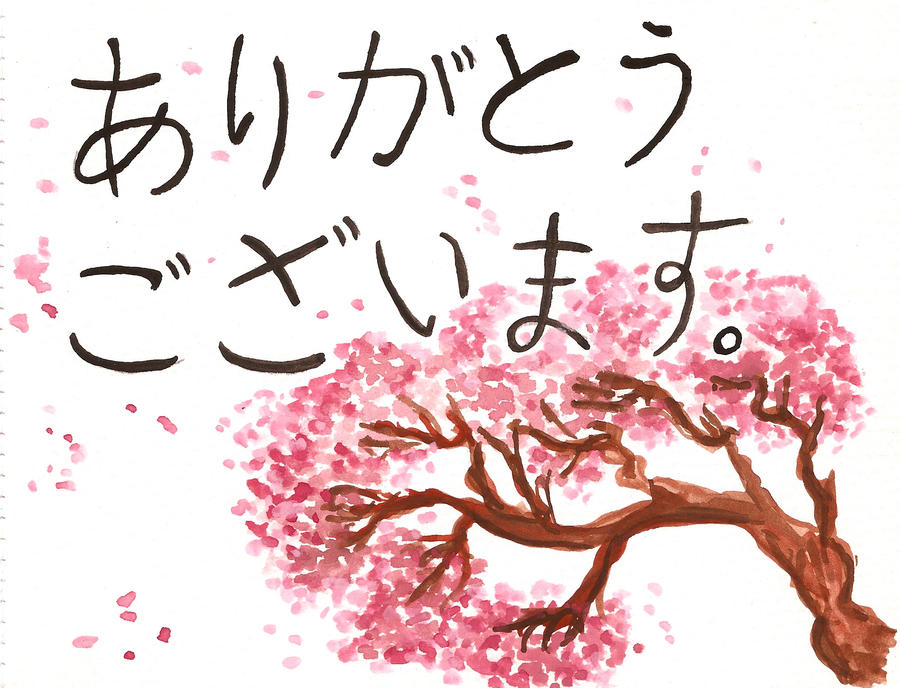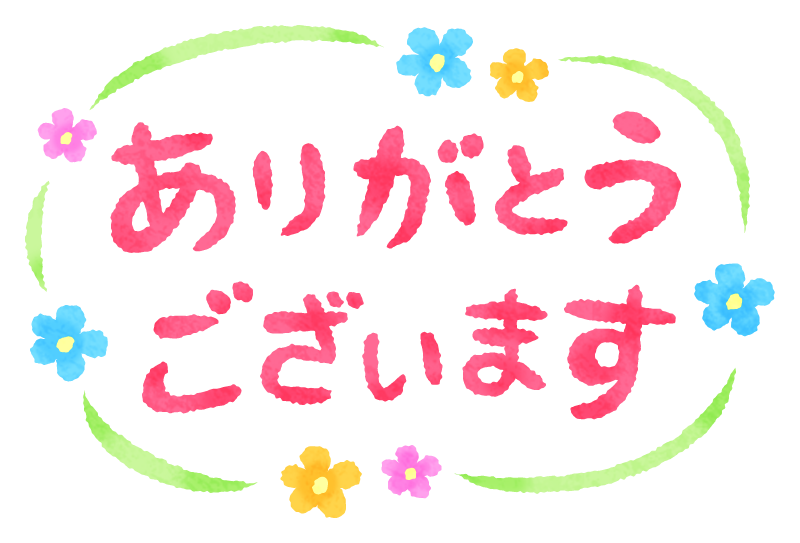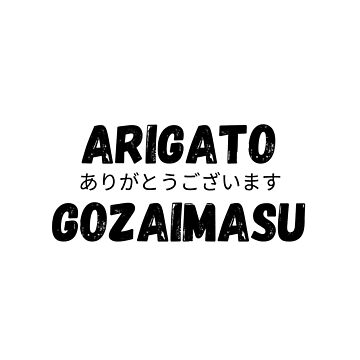Mastering 'Arigato Gozaimasu': Your Guide To Japanese Gratitude
Table of Contents
- The Essence of Gratitude: Understanding "Arigato Gozaimasu"
- Navigating Politeness: "Arigato" vs. "Arigato Gozaimasu"
- The Nuance of Time: "Arigato Gozaimasu" vs. "Arigato Gozaimashita"
- Beyond the Basics: Elevating Your Gratitude with "Domo Arigato Gozaimasu"
- Cultural Significance: Why Politeness Matters in Japan
- Practical Applications: Using "Arigato Gozaimasu" in Daily Life
- Learning and Mastering Japanese Expressions of Gratitude
- The E-E-A-T and YMYL Connection: Why Linguistic Precision Matters
The Essence of Gratitude: Understanding "Arigato Gozaimasu"
At its core, "arigato" (ありがとう) means "thank you" or "thanks." It is, without a doubt, the most common and foundational way to express gratitude in Japanese. However, much like in English where "thanks" differs from "thank you very much," Japanese offers layers of politeness. This is where "gozaimasu" comes into play. The addition of "gozaimasu" transforms a simple "thank you" into a more formal and polite expression, effectively translating to "thank you very much." This distinction is not merely semantic; it carries significant weight in Japanese social interactions. When you encounter "Arigato Gozaimasu" (sometimes transcribed as "arigatou gozaimasu"), you are looking at the most common form of politeness when addressing someone, especially in general situations. In hiragana, this phrase is elegantly written as ありがとうございます. While it's not common to find it written in kanji, its hiragana form is instantly recognizable and widely used. This phrase is polite and appropriate in most situations, particularly when speaking to people you don't know well, making it a versatile and indispensable part of your Japanese vocabulary.Navigating Politeness: "Arigato" vs. "Arigato Gozaimasu"
The choice between "arigato" and "arigato gozaimasu" hinges entirely on the context and your relationship with the person you are addressing. This reflects a fundamental aspect of Japanese communication: understanding and respecting social hierarchies and relationships. While both convey thanks, their usage dictates the level of respect and familiarity being conveyed.When Casual "Arigato" Suffices
"Arigato" on its own is considered a casual way of saying thank you. It is the most common way to thank close friends and family members in Japanese. Imagine a casual chat with a sibling who hands you a drink, or a quick exchange with a long-time friend who offers a small favor. In these intimate settings, "arigato" is perfectly natural and appropriate. Using "arigato gozaimasu" in such a relaxed context might even sound overly formal or distant, creating an unintended barrier between you and someone you share a close bond with. It signifies a level of familiarity and comfort that allows for less formal language, much like saying "thanks" to a buddy instead of "thank you very much, sir."The Power of Formal "Arigato Gozaimasu"
Conversely, "arigato gozaimasu" is a more formal and polite way of expressing gratitude. This is the phrase you should reach for when interacting with individuals who hold a higher status than you, or with whom you do not have a close personal relationship. If you're speaking to a supervisor, a teacher, a family elder, or even a shop assistant, using the formal phrase "arigatou gozaimasu" is not just recommended, it's often expected. It demonstrates respect, humility, and an understanding of social decorum. It’s polite and appropriate in most situations, especially when speaking to people you don’t know. This choice between the two expressions depends heavily on the level of formality required, underscoring the importance of situational awareness in Japanese communication.The Nuance of Time: "Arigato Gozaimasu" vs. "Arigato Gozaimashita"
Beyond the level of politeness, Japanese expressions of gratitude also incorporate a temporal element, distinguishing between an ongoing or immediate act of kindness and one that has concluded. While "Arigato Gozaimasu" and "Arigato Gozaimashita" both translate to "thank you very much," these phrases are slightly different in usage, specifically regarding the timing of the action you are thanking for. When you say thank you right after you've received kindness or a favor from someone, you say "arigatō gozaimasu." This is used when the action is happening now, or has just happened and its effect is still present. For example, if a shop assistant hands you your purchase, you would say "arigato gozaimasu." If someone is currently holding a door open for you, or is in the process of helping you, "arigato gozaimasu" is the correct choice. However, "arigatō gozaimashita" is used when the action you're thanking for is completely in the past. Imagine you received help from a colleague yesterday, or you finished a wonderful meal at a restaurant an hour ago. When you reflect on that completed action and wish to express your gratitude for it, you would use "arigato gozaimashita." The suffix "-mashita" indicates past tense, making it clear that the act of kindness is a finished event. This subtle yet crucial distinction showcases the precision of the Japanese language in conveying not just politeness, but also the exact temporal context of your gratitude.Beyond the Basics: Elevating Your Gratitude with "Domo Arigato Gozaimasu"
While "arigato gozaimasu" covers a wide range of polite expressions of gratitude, there are instances when you might want to convey an even deeper, more profound sense of appreciation. This is where the phrase "domo arigato gozaimasu" comes into play. The addition of "domo" (どうも) amplifies the sentiment of thanks, transforming it into the most polite and heartfelt expression of gratitude available in Japanese. "Domo" on its own can also mean "thanks" or "very much" in an informal context, but when combined with "arigato gozaimasu," it creates a powerful phrase used for the most formal settings or when showing truly deep gratitude. For instance, if someone goes significantly out of their way to help you, or if you are expressing thanks for a major favor or a profound act of kindness, "domo arigato gozaimasu" is the way to go. It conveys a level of sincerity and indebtedness that goes beyond standard politeness. This phrase is reserved for moments when you want to emphasize the immense value of the kindness received and your genuine appreciation for it.Cultural Significance: Why Politeness Matters in Japan
Understanding the nuances of "arigato gozaimasu" and its variations is not merely about linguistic accuracy; it's about grasping the underlying cultural values that shape Japanese society. Politeness, or "reigi" (礼儀), is deeply ingrained in Japanese culture and serves several crucial functions, including maintaining social harmony, demonstrating respect for others, and reinforcing social hierarchies. One key concept is "uchi-soto" (内-外), which distinguishes between one's inner circle (family, close friends) and outer circle (strangers, colleagues, superiors). The language used, including expressions of gratitude, naturally shifts depending on whether you are speaking to someone in your "uchi" group or "soto" group. "Arigato" for "uchi," "arigato gozaimasu" for "soto." Another vital aspect is "omotenashi" (おもてなし), the unique Japanese approach to hospitality that emphasizes anticipating and fulfilling guests' needs without expectation of reward. When you receive such selfless service, responding with the appropriate level of gratitude, like "arigato gozaimasu," acknowledges this deep-seated cultural value and shows you appreciate the effort and thought put into the service. Ultimately, using the correct form of gratitude helps to maintain "wa" (和), or harmony, within social interactions. It shows that you are aware of your position, respectful of others, and keen to avoid causing any discomfort or embarrassment. In a society where indirect communication and consideration for others' feelings are paramount, choosing the right words, especially for thanks, is a testament to one's cultural literacy and respect.Practical Applications: Using "Arigato Gozaimasu" in Daily Life
Integrating "arigato gozaimasu" correctly into your daily interactions in Japan can significantly enhance your experience and foster positive relationships. It's a versatile phrase that you'll find yourself using countless times, from mundane transactions to significant gestures of appreciation.Common Scenarios for "Arigato Gozaimasu"
* **In Shops and Restaurants:** When a cashier hands you your change, a server brings your food, or a shop assistant helps you find an item, "arigato gozaimasu" is the standard and expected response. * **At Work:** When a colleague helps you with a task, a supervisor provides guidance, or a client thanks you for your service, responding with "arigato gozaimasu" maintains professionalism and respect. * **With Strangers:** If someone gives you directions, helps you with luggage, or holds a door for you, "arigato gozaimasu" is the appropriate way to acknowledge their kindness. * **Receiving Gifts or Favors:** Whether it's a small souvenir or a significant favor, expressing your thanks with "arigato gozaimasu" shows genuine appreciation. * **After a Service:** Upon leaving a hotel, a taxi, or a clinic, saying "arigato gozaimashita" (since the service is completed) is a polite way to conclude the interaction.Missteps to Avoid
While "arigato gozaimasu" is generally safe, there are minor pitfalls to be aware of. The primary one is using "arigato" alone in formal settings or with people you don't know well. It can come across as overly casual or even impolite. Another misstep is simply forgetting to express gratitude altogether. In a culture that values politeness so highly, a lack of thanks can be perceived as rude or unappreciative. When in doubt, it's always safer to err on the side of formality and use "arigato gozaimasu."Learning and Mastering Japanese Expressions of Gratitude
Mastering the nuances of "arigato gozaimasu" and its counterparts is an ongoing journey that goes hand-in-hand with learning the Japanese language itself. It requires not just memorization, but also a deep understanding of the cultural contexts that dictate its usage. One of the most effective ways to truly grasp these nuances is through immersion and active listening. Pay attention to how native speakers use these phrases in different situations. Observe their body language, the tone of their voice, and the specific contexts in which they choose "arigato," "arigato gozaimasu," or "domo arigato gozaimasu." Language learning apps, online resources, and formal Japanese classes can provide structured learning, but real-world application and observation are invaluable. Practice makes perfect, and the more you use these expressions, the more natural they will become. Embracing this learning process is not just about becoming a more proficient Japanese speaker, but about becoming a more culturally aware and respectful global citizen.The E-E-A-T and YMYL Connection: Why Linguistic Precision Matters
While the topic of expressing gratitude in Japanese might seem far removed from the direct implications of "Your Money or Your Life" (YMYL) content like financial advice or medical information, the principles of E-E-A-T (Expertise, Experience, Authoritativeness, Trustworthiness) are profoundly relevant. Understanding and correctly applying phrases like "arigato gozaimasu" is a testament to one's expertise and trustworthiness in navigating cross-cultural communication, which can indeed have significant real-world impacts. **Expertise and Experience:** Providing accurate guidance on Japanese etiquette demonstrates genuine expertise in the language and culture. This isn't just about knowing dictionary definitions but understanding the lived experience of communicating in Japan. Misusing these phrases can lead to misunderstandings, strained relationships, or even lost opportunities in professional or personal settings. For instance, a business negotiation where politeness is overlooked due to linguistic ignorance could lead to a less favorable outcome. **Authoritativeness and Trustworthiness:** This article aims to be an authoritative source by drawing from established linguistic principles and common cultural knowledge, presenting information clearly and accurately. Readers can trust that the advice given is sound and practical, helping them avoid social faux pas. In a world increasingly connected, the ability to communicate respectfully across cultures is a valuable skill. For travelers, students, or business professionals interacting with Japanese counterparts, correct linguistic usage directly impacts their reputation and the success of their endeavors. While not directly about "money" or "life" in the most literal sense, effective cross-cultural communication can certainly influence one's social standing, professional success, and overall well-being in foreign environments. Therefore, precision in language, especially in conveying fundamental emotions like gratitude, is a critical component of successful and respectful global interaction.Conclusion
"Arigato Gozaimasu" is far more than just a phrase; it is a gateway to understanding the intricate tapestry of Japanese culture and the profound importance placed on respect, harmony, and politeness. From its casual counterpart "arigato" to the deeply formal "domo arigato gozaimasu," each expression of gratitude carries its own weight and context, reflecting the speaker's awareness of their relationship with the listener and the situation at hand. Mastering these nuances is not about rote memorization, but about cultivating a deeper appreciation for the subtleties of human connection. By understanding when to use "arigato gozaimasu" for general politeness, "arigato" for close friends, and "arigato gozaimashita" for past actions, you empower yourself to communicate with greater accuracy and sincerity in Japanese. This knowledge will not only enhance your linguistic abilities but also enrich your interactions, fostering stronger bonds and deeper mutual respect. So, the next time you find yourself in a situation requiring thanks in Japanese, remember the power of these words. Practice them, embrace their cultural significance, and share your experiences. What are your favorite situations to use "arigato gozaimasu"? Share your thoughts in the comments below, and explore more of our articles on navigating cultural nuances in communication!- Legends Pizza
- South Shore Buds
- Embassy Suites Indianapolis Downtown
- Pugh Funeral Home Asheboro Nc
- Bayshore Club

Arigato gozaimasu by emmaprew on DeviantArt

Arigato Gozaimasu

"Arigato Gozaimasu White and black Thank you Japanese Traduction Cute